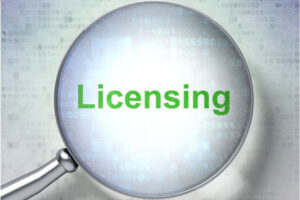Various rules and laws govern licensed chiropractors. The Texas Board of Chiropractic Examiners (“the Board”) monitors chiropractors’ compliance with these laws and enforces them as needed. If chiropractors violate applicable rules or laws, they may face disciplinary proceedings before that agency.
During these proceedings, you need experienced legal counsel to protect your ability to practice as a chiropractor and/or operate your office. A chiropractic license defense lawyer can represent you before the Texas Board of Chiropractic Examiners in disciplinary proceedings and help avoid or minimize the potential sanctions you may face.
Potential Sanctions in Disciplinary Proceedings Before the Board
Suppose the Board finds probable cause that you have violated a law or rule related to your profession that it enforces. In that case, it must determine the appropriate sanction for that violation. Various types of sanctions are available to the Board under 22 Tex. Admin. Code §80.3, including the following:
- License revocation;
- License suspension;
- License suspension with probation;
- Written formal reprimand;
- Administrative penalty assessment;
- Retaking the jurisprudence exam; and/or
- Additional continuing education.
Furthermore, the Board may set additional limitations on a licensee’s practice as a condition of probation, which may include:
- Completing additional specific continuing education courses;
- Passing specific examinations;
- Restricting the type of treatments, treatment procedures, or class of patients to be treated;
- Restricting the ability to supervise others; or
- Requiring the licensee to undergo a psychological or medical evaluation and any recommended treatment.
Furthermore, violations of any statute or rule are subject to a maximum penalty of $1,000 per violation per day, plus license revocation.
A license suspension requires that the chiropractor refrain from the following actions for the duration of the suspension:
- Receiving any remuneration from their chiropractic practice;
- Communicating with any patients other than ensuring continuation of care;
- Providing any chiropractic services to any person; and
- Being present at any location where chiropractic services are provided.
Reporting Violations to National Practitioner Databases
Generally, the Board will report all final disciplinary actions involving criminal acts, physical or economic harm to patients, or serious violations of statutes or rules to the Chiropractic Information Network-Board Action Data Bank (CIN-BAD) and all other national databases as required.
Click to contact our professional license defense lawyers today
The Board has categorized specific violations of rules or laws based on severity under 22 Tex. Admin. Code §80.4. Category I violations require reporting to national practitioner databases as required by law. Some common examples of mandatorily reportable Category I violations include the following:
-
- General Board Authority – Violating a provision of Tex. Occ. Code § 201 or a Board rule
- Board Fees, Applications, and Renewals – Practicing without a license, providing false information on a license application, purchasing, selling, or using documents related to an application or license, and failing to designate oneself as a retired chiropractor
- Business Practices – Failing to report suspected fraud, failing to provide a written receipt or summary of all charges to a patient making such a request, failing to follow the Board’s requirements for prepaid treatment plans, and failing to prevent unsafe or unsanitary conditions at a location where the licensee practices chiropractic.
- Patient Records and Documentation – Failing to maintain the required content of patient records, failing to store and maintain patient records properly, and failing to maintain the confidentiality of patient communications and records.
- Advertising and Public Communications
- Advertising – Using chiropractor designations without holding a valid license, using public communications or advertising containing false, misleading, deceptive, or fraudulent claims, using public communications or advertising indicating that the licensee provides services outside the scope of practice, and failing to clearly state all included component services in any public communications or advertising indicating service is free.
- Telemarketing – Using telemarketing that promises the successful treatment of any condition.
- Misleading Claims – Making misleading claims intended to treat false expectations of the favorable results or cost of treatment or representing only a partial disclosure of the conditions and facts of the extent of treatment and using certain false or misleading claims in advertising.
- Scope of Practice
-
-
- Prohibited Acts Outside the Scope of Practice
- Unlawful Associations
-
- Fraudulent Acts
- Delegation – Delegating responsibility to an untrained individual, delegating responsibility to render a diagnosis, prescribe a treatment plan, or perform adjustment or manipulations, delegating responsibility to a chiropractic student when the licensee has not had a license in good standing for five years and has not been licensed by the Board for one year, failing to be on-site when a chiropractic student performs an adjustment or manipulation, delegating the performance of radiologic procedures to an untrained individual, and failing to be on the premises where a radiologic procedure is performed.
- Unprofessional Conduct—All types of unprofessional conduct are Category I violations, except failing to transfer a patient’s records in a timely manner.
- Financial Misconduct – All types of financial misconduct, from soliciting patients to billing and financial fraud, are Category I violations.
- Sexual Misconduct – All types of sexual misconduct are Category I violations.
- Substance Abuse and Impairment – All types of substance abuse and impairment are Category I violations.
- Complaints and Enforcement Actions—All violations that occur during the complaint and enforcement action process are Category I violations.
However, Category II violations are not reportable to national practitioner databases as required by law unless they are egregious or the licensee has a significant history of similar administrative violations.
Final disciplinary actions also are matters of public record unless otherwise exempted by law. The Board publishes final disciplinary actions.
We Will Represent Your Interests Before the Texas Board of Chiropractic Examiners
Complete a Case Evaluation form now
We know how crucial it is for you to maintain your chiropractic license and continue the career that you have worked so hard to establish. We aim to help you defend yourself against disciplinary proceedings and mitigate or prevent potentially damaging sanctions. The experienced chiropractic license defense lawyers at Bertolino, LLP, will advocate to protect your license during your disciplinary proceedings. Call us at (512) 515-9518 or contact us online.
Call or text (512) 476-5757 or complete a Case Evaluation form





